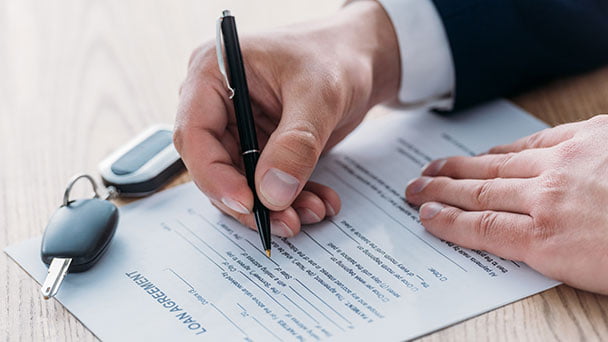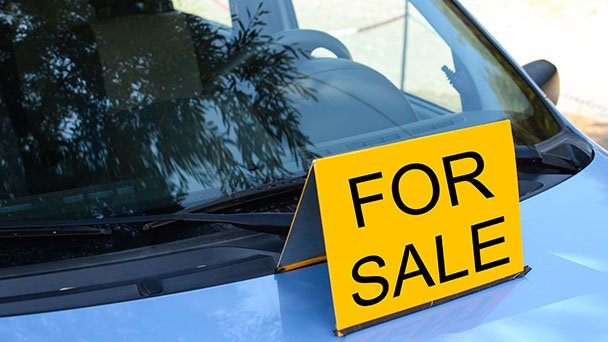Learn how to transfer car ownership in NSW. Step-by-step guide for buyers & sellers, including fees, documents & deadlines. Avoid fines & get it done fast.
You may be faced with a number of reasons why you want to sell your car. Does this sound like you?
Whatever reason you have for wanting to sell your car, it is much easier if you own your vehicle outright. But, if it is financed and you still owe money on the repayments, things get a little more complicated.
The good news is that in the majority of cases you can sell a financed car and it is legal to do so. However, you will need to follow a few extra steps in your sales process as outlined below.


There are multiple ways to sell a car that is financed. However, this 5-step-guide is what we have found to be the most convenient for most sellers.
Before you do anything, it's important that you contact your lender and let them know of your intentions. As the car is legally owned by the lender, you will need their approval before you proceed with advertising or selling.
You should also ask if they have a specific procedure for selling a car that is financed by them to avoid problems later on.
Most lenders will be fine with you selling a financed car. But they may ask you to use the sale to pay off the outstanding amount of the loan.
Depending on your loan contract, you may also have to pay an early termination penalty for paying off your loan earlier than expected. Read over your contract terms and ask your lender to confirm.
When talking to your lender, ask for the "payoff amount". This should include the amount owing and any other fees to completely end the contract. Knowing this amount will help you decide on the asking price for selling your car.


At this point, you should have the approval to sell the car from your lender and know all the costs involved with this. Now you can move on to advertising and finding a buyer.
However, you must remember to be transparent and honest about the fact that there is still an outstanding loan on the car. Not just because it is the right thing to do, but this will also prevent you from breaking the law.
You will need to disclose that the car is encumbered (meaning it is not free of debt). This information should be provided in your advertisements and in any conversations you have with any potential buyers.
If you're going to pay off the loan with the money you get from the sale, you should also mention this too. This will help give confidence to the buyer that the car will be unencumbered when they take ownership.
Of course, you must release that it may be a bit harder to find a confident buyer due to this slight hurdle. As such, you may not get the best price when selling a car that is under finance, compared to one that is free of debt.
An alternative to trying to sell a financed car privately would be to sell it to a car dealer. Car dealers often face people in this situation and have processes in place to handle these scenarios.


Once you've found a buyer and agreed on a price, these are the best two options to move forward with the sale:
First and foremost, the best way is to have the buyer pay off the outstanding loan directly to your lender. Then get them to send the rest of the agreed-upon price to your bank.
All of this can be done over the phone, in front of a computer or by attending the lender's office and bank in person.
In my experience, this is the easiest way of handling payments when selling a car that is still under finance. It helps give the buyer confidence that the car title is clean because they paid off the loan themselves.
Alternatively, you can ask for full payment from the buyer. Then you should contact your lender to pay off the rest of the loan and any fees yourself.
Of course, this option will require a degree of trust from the buyer.
As such, you may agree that the buyer pays half of the sale price upfront. This gives both parties confidence in the transaction and will allow you to pay off the loan.
Then once you prove the loan has been paid off, which happens in Step 4, the buyer pays the other half to complete the sale.


Once the loan has been paid off, either from the buyer directly or yourself with money from the sale, you should request a release letter from your lender.
This letter will state that the loan has been paid in full and that the car no longer belongs to them.
The buyer will need this letter to register the car in their name. Plus it gives them absolute confidence there are no loan repayments owing on the car.
With the release letter from your lender and after full payment of the sale has taken place, you can then go ahead and transfer ownership of the car to the buyer.
This can be done by signing over the registration papers. You will also need to give them the release letter from the lender.
And that's it! You have now successfully sold a car under finance.


Yes, selling a car under finance is legal as long as you follow the steps we outlined above.
However, there are some consequences that you should be aware of before doing so. The biggest one is that you may end up damaging your credit score if you don't pay off the loan in full.
This could happen if you sell the car but keep the loan. When this happens, the lender will still see the loan as outstanding and can report it to credit agencies.
So, if you're not confident that you can pay off the loan quickly, or all in one go as per our directions above, it's best to avoid selling your car when under finance.
Another consequence is that you may have to pay a very large early repayment fee if you have a loan with a fixed interest rate.
This fee may range from hundreds to thousands of dollars and is charged by the lender for breaking the terms of the loan agreement. Depending on the terms of your contract, this fee may make it unreasonable to move forward at all.
So, if you're thinking of selling your car under finance, make sure you contact your lender first and understand all the fees and consequences involved.
By following your contract terms and the directions from your lender, selling a car under finance can be perfectly legal.
Learn how to transfer car ownership in NSW. Step-by-step guide for buyers & sellers, including fees, documents & deadlines. Avoid fines & get it done fast.
Discover your car’s true value with our expert guide. Learn what affects price & get accurate estimates with easy tools. Fast, simple & Aussie-focused advice.
Learn how to sell your car quickly & get a fair price with expert tips on pricing, prep, listings & removal services. Fast, easy & reliable advice inside.
Thinking about trading in your car? Whether you’re upgrading or just curious about how much your current ride is worth, understanding trade-in value is essential. Dealers use a mix of factors and formulas to decide what they’ll offer you, and those numbers can vary widely. In this guide, we’ll break it all down, no guesswork […]